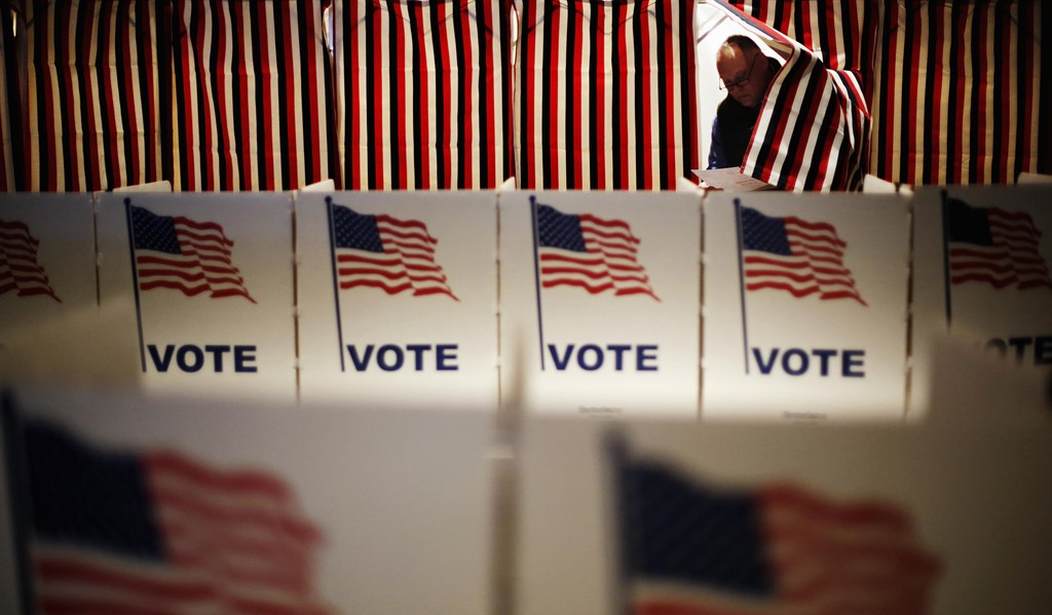It is a little less than a week before the midterm elections. The Republicans are poised to keep the Senate. This is a really big deal. The hearings over Judge Kavanaugh's confirmation to the Supreme Court reminded the country of the Senate's importance in confirming federal and Supreme Court judges.
No matter what else happens this fall, this would be a big victory for Republicans.
The Democratic senators who used the confirmation process as a national stage to try out for their party's nomination will continue to grandstand, but they will not have control.
Control of the House of Representatives is another matter. Normally, the party of the president loses seats in midterm elections. Maybe it's a way for voters across the country to balance out power in Washington: If one side has the presidency, then the other gains more power in the legislature.
To gain control of the House, the Democrats need to pick up 23 seats. According to RealClearPolitics, 204 seats are likely to go to Democrats and 199 to Republicans, with 32 in the toss-up column.
So, what influences the House races? According to Gallup's analysis, there are four national indicators that "have strong statistical relationships with seat change for the president's party, such that when the indicators are worse, the president's party loses more seats.
"Since 1994, the correlations between seat change and presidential job approval (.71), congressional job approval (.78) and U.S. satisfaction (.81) have been about the same, while the correlation with economic conditions and seat change (.58) is slightly weaker," Gallup notes. "A score of 1.0 indicates a perfect relationship while a score of 0 indicates the two variables are unrelated."
Recommended
Let's look at recent history: In 2010, the first midterms under President Barack Obama, his approval rating was 45 percent; congressional approval was 21 percent; U.S. satisfaction was 22 percent; and economic conditions were -31 percent (net-positive). (This is the net measure of those who rate current economic conditions as excellent or good minus those who rate it as poor.)
The results from Obama's first midterm elections? A net loss of 63 Democratic seats in the House, where the Republicans gained control. The Republicans also picked up six seats in the Senate.
So where do these variables stand today?
The president's current job approval rating is 41 percent, according to Gallup; Congress has an approval rating of 21 percent, U.S. satisfaction is at 33 percent and economic conditions stand at a net-positive rating of 43 percent.
Normally, a positive economic outlook translates into a higher approval for the president. This has not happened with Trump. Also historically, "since 1950, when a president's approval rating is below 50 percent, his party has lost an average of 37 seats," according to Gallup. But normally this is also accompanied by a poor economic outlook.
My guess is that the Republicans will do better than that; they will lose fewer seats than average and might even hold onto the House.
In some ways, having a Democratic-controlled House might be good for Trump. It would give him a natural foil to provide voters in 2020 with a clear view of his goals. Unfortunately, it would also dramatically slow or halt legislative progress.
A Democratic House would also likely restore Rep. Nancy Pelosi, D-Calif., as speaker. She would focus on attempting to impeach Trump; abolish Immigration and Customs Enforcement; and establish government-controlled health care. Remember, she's the speaker who ushered in Obamacare.
Remember, too, that under the U.S. Constitution, the House of Representatives can bring up articles of impeachment. If passed, the allegations of "high crimes and misdemeanors" are then weighed by the Senate, which tries the case to determine whether to convict. The House of Representatives impeached Presidents Andrew Johnson and Bill Clinton; the Senate acquitted them.
More than likely, a few House races will be too close to call in the immediate aftermath of the elections, and it might be weeks before final determinations are made.
If you haven't already voted, make sure you do so. Remember, your vote could decide whether Pelosi regains the role of speaker of the House for the next two years.

























Join the conversation as a VIP Member